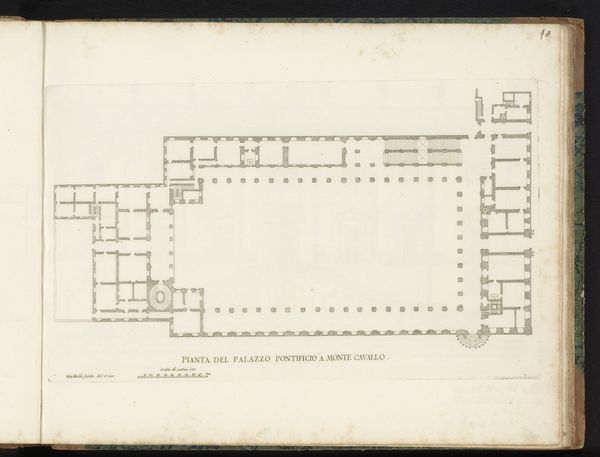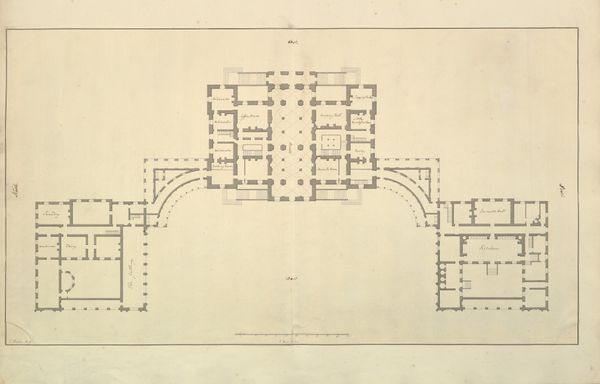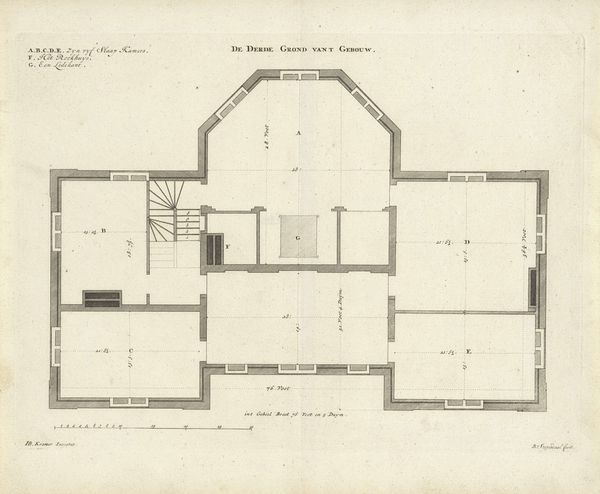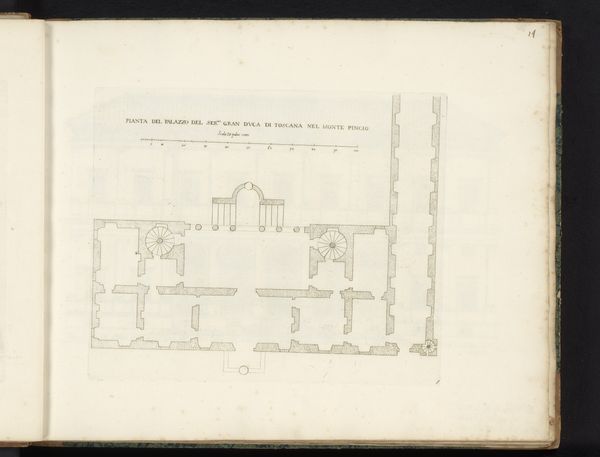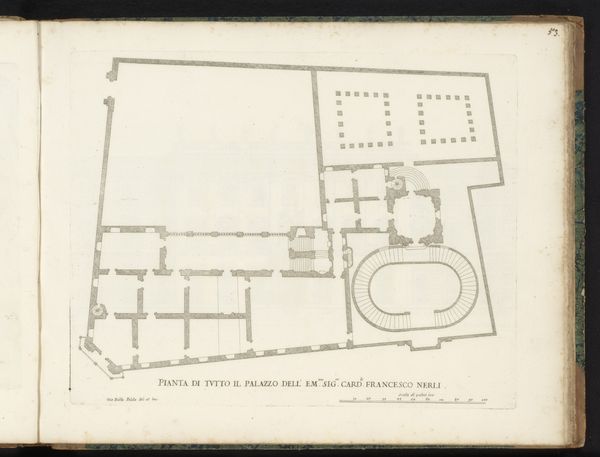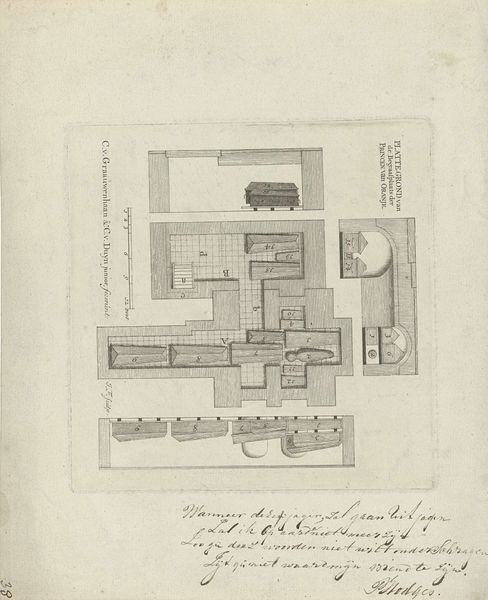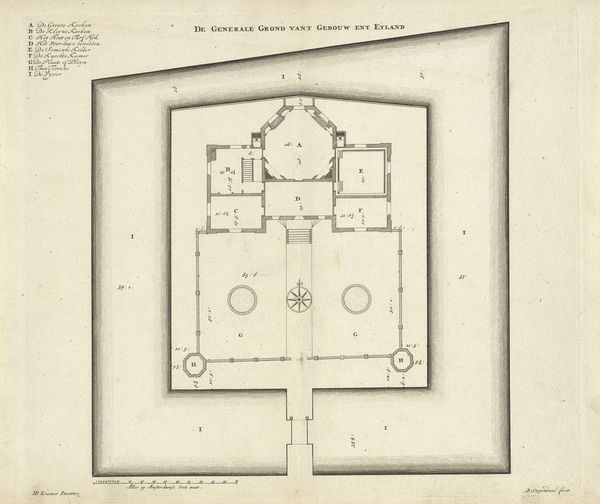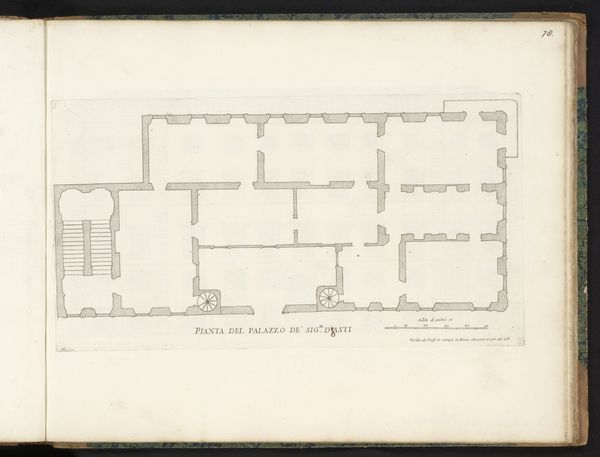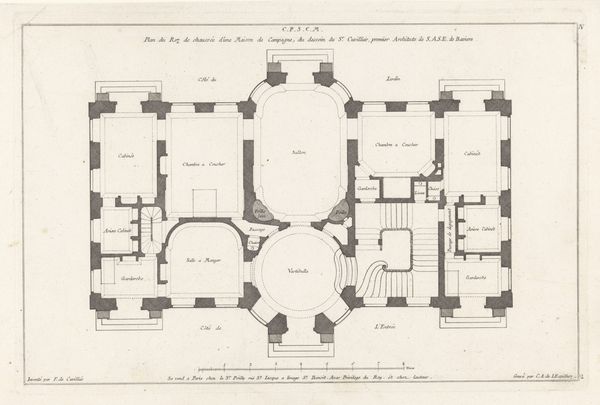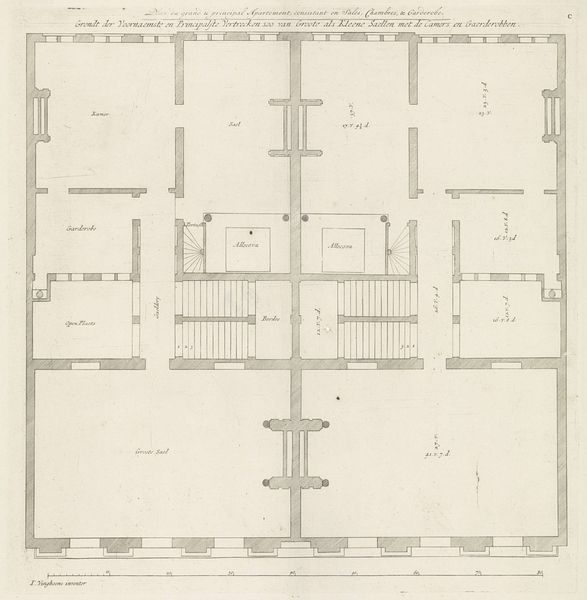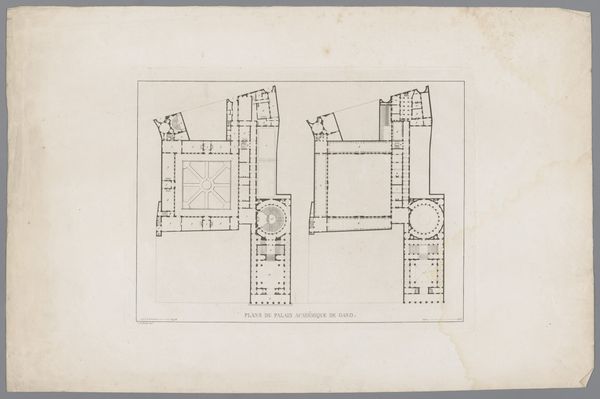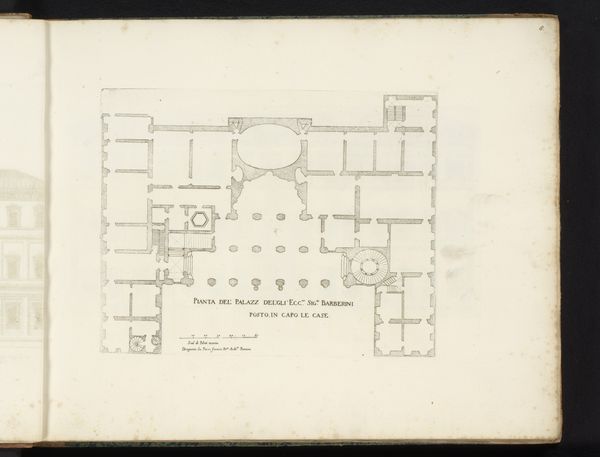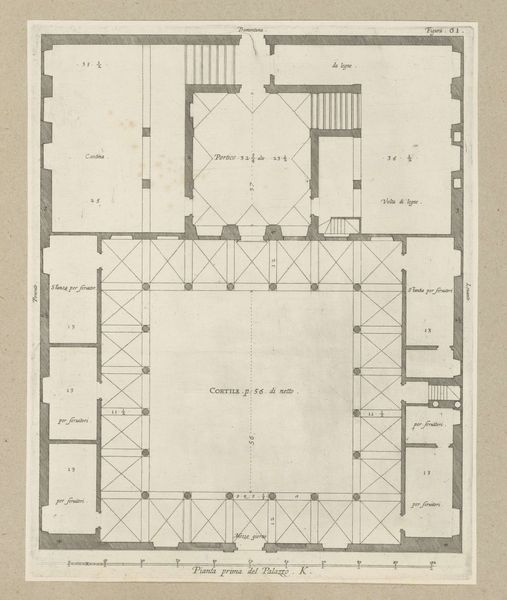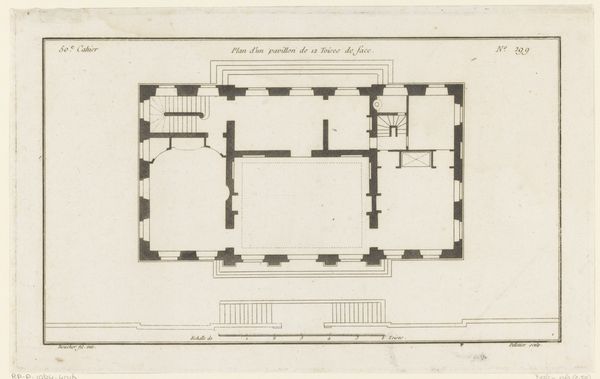
Architecture Françoise, 4 Volumes 1752 - 1756
0:00
0:00
drawing, print, etching, architecture
#
drawing
#
neoclacissism
# print
#
etching
#
geometric
#
architecture
Copyright: Public Domain
Editor: Here we have Jacques François Blondel’s "Architecture Françoise, 4 Volumes," dating from 1752-1756. It's a drawing, or rather, a print, and seems to be an etching – a floor plan, actually. It’s quite detailed! What can you tell me about this work? Curator: From a materialist perspective, this print offers a fascinating window into the labor and resources required to construct and maintain a building like Versailles. Consider the physical act of creating this drawing - the etcher painstakingly translating architectural vision into a reproducible image, a labor-intensive process meant to disseminate knowledge and architectural ideals. Who would be consuming these prints and how were they used? Editor: So, beyond just showing the layout, it’s also showing the accessibility of these designs at the time? Curator: Precisely. The very existence of these volumes points to a burgeoning market for architectural knowledge. Consider who might have commissioned such a detailed work – were they intended for aspiring architects, wealthy patrons, or perhaps even state officials seeking to standardize building practices? Also consider the social implications of disseminating such architectural designs through print – were these styles emulated in middle-class construction? Editor: That makes you think about how architectural ideas trickled down, or didn’t! I hadn’t considered the production process itself. Curator: And look at the materials implied in the plan itself: the vast quantities of stone, wood, glass, and the labor of countless individuals required to transform this drawing into a physical reality. Think about the sourcing and movement of these materials, reflecting broader economic and colonial structures of the time. This is about power represented through material accumulation. Editor: I see what you mean. It is far more than just lines on paper; it really exposes an entire world of production and consumption. I'll never look at architectural drawings the same way!
Comments
No comments
Be the first to comment and join the conversation on the ultimate creative platform.
